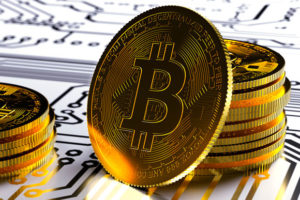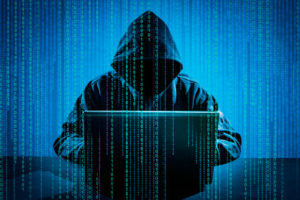May 14th, 2018
Bitcoin, Medicine, and More
Karmen Wielunski, DO

Karmen Wielunski, DO, is a 2017-18 Chief Resident in Internal Medicine at the Medical College of Wisconsin in Milwaukee, WI
What’s the big deal about Bitcoin and digital currency? For the past year, my husband (who has a business background) has been enthusiastically researching digital currency. Thus, the terms Bitcoin (BTC) and MaidSafeCoin (MAID) have become commonplace in my household for some time. But, to be honest, I hadn’t been paying much attention to any of it until recently. Don’t get me wrong — it’s not that I don’t listen when my husband talks. Rather, my medically trained mind tends to wander due to an inaptitude for many business and technological concepts.
With all the Bitcoin buzz and a New Year’s resolution to be more up to date on current events, I attempted to become informed. I asked my husband to, once again, break down this whole digital currency thing for me. About 2 minutes into his explanation (I’m sure he could see my mind wandering), he paused and said, “You know what, why don’t I just show you how it works.” And, with that, I was buying (a fraction of) a Bitcoin.
 I started by creating an account on Coinbase. This was easy and only required verification of my email address and phone number. I then linked it to my bank account. With a click of a button, I was the proud owner of 0.0021 Bitcoin (worth US$25). Actually, I had to wait a few days for the transaction to process, but it was less complicated than I imagined. By creating an account, I also acquired a public address that consists of a long string of numbers and letters (for example, mine is 166ZUjHuWRGBFm71irtEXLhJRKCv4JooqM). While I won’t be committing this to memory anytime soon, I learned that the public address allows for easy transfer of digital payments from one party to another.
I started by creating an account on Coinbase. This was easy and only required verification of my email address and phone number. I then linked it to my bank account. With a click of a button, I was the proud owner of 0.0021 Bitcoin (worth US$25). Actually, I had to wait a few days for the transaction to process, but it was less complicated than I imagined. By creating an account, I also acquired a public address that consists of a long string of numbers and letters (for example, mine is 166ZUjHuWRGBFm71irtEXLhJRKCv4JooqM). While I won’t be committing this to memory anytime soon, I learned that the public address allows for easy transfer of digital payments from one party to another.
A Frightening Revelation
With my newly acquired (though, admittedly still minimal) knowledge, I wondered how Bitcoin might affect healthcare. It only took about 30 seconds of internet research to realize that Bitcoin and digital currency are already very much affecting healthcare. I read an article that detailed a cyberattack on the U.K.’s National Health Service (NHS). During the attack, hackers created an electronic lockdown that affected the NHS and then demanded a Bitcoin ransom to release it (N Engl J Med 2017; 377:409).
 Another article detailed a very recent cyberattack on a hospital in Indiana that targeted more than 1400 files. The hospital paid 4 Bitcoins (about $47,000) to hackers to regain access to their files (Health IT News 2018 Jan 16; [e-pub]). The reports of these attacks went on and on — institutions in Texas, California, and Kentucky are all recent victims. Each story detailed some combination of patient record and computer access involvement, and many involved Bitcoin ransom requests.
Another article detailed a very recent cyberattack on a hospital in Indiana that targeted more than 1400 files. The hospital paid 4 Bitcoins (about $47,000) to hackers to regain access to their files (Health IT News 2018 Jan 16; [e-pub]). The reports of these attacks went on and on — institutions in Texas, California, and Kentucky are all recent victims. Each story detailed some combination of patient record and computer access involvement, and many involved Bitcoin ransom requests.
WHAT? This is a big deal! My simple quest to learn about a trendy form of currency led me to recognize a very serious threat to healthcare system security. As I continued to read through more accounts of recent cyberattacks, I felt embarrassed about my obliviousness up to this point. I worried about the seemingly routine nature of these attacks. Are we all just sitting ducks waiting for our healthcare information to be breached?
Hope For The Future
With a sense of urgency, I again consulted my husband. “Did you know this was happening?” I asked. He was excited about my continued interest in the topic and began catching me up. It turns out other people are (understandably!) worried about this, too. Many companies are attempting to create programs using Blockchain — the technology upon which Bitcoin is based — to improve data security.
 One company called MaidSafe, he explained, is taking an entirely different and exciting approach to solving this problem. They are currently developing a new technology using datachains to create a SAFEnetwork which is, essentially, a decentralized, anonymous internet. The network data is encrypted, broken into pieces, and stored across many locations, making it anonymous and secure beyond existing systems. The live version could possibly launch in 2018 and holds great promise for countless applications including the safe keeping of healthcare information.
One company called MaidSafe, he explained, is taking an entirely different and exciting approach to solving this problem. They are currently developing a new technology using datachains to create a SAFEnetwork which is, essentially, a decentralized, anonymous internet. The network data is encrypted, broken into pieces, and stored across many locations, making it anonymous and secure beyond existing systems. The live version could possibly launch in 2018 and holds great promise for countless applications including the safe keeping of healthcare information.
As previously noted, my knowledge of technology is limited at best, and I don’t claim to be an expert on this topic. The above explanations are likely drastically oversimplified, but I feel it is important to discuss the concepts and what is being done to combat this threat to healthcare security. In the meantime, I still feel like a sitting duck. However, it’s encouraging that people are working to come up with a solution, and hopefully one will be available soon.



Really looking forward to how Maidsafe’s SAFE Network can transform the health industry along with so many other everyday use cases. I’ve been in the crypto shere since 2013 and the SAFE Network is one of the most promising to deliver a practical solution that can be widely adopted. Nice article, cheers!
I agree! Thanks so much for reading!
Very interesting post! While I’m very pleased by the medical community’s increasingly willingness to engage with new technology, I worry that blockchain, with all its hype, feels more like a tool in search of a solution. I also worry that many evangelists of blockchain technology haven’t really proven to the world that they truly understand the technology, mainly because they don’t explain it very clearly (I mean no offense to the author of this post though! Not a reference to you!). Also, there’s been plenty of doctors in history who’s told their patients, trust me, just take this pill, with disastrous consequences.
I, for one, do not understand the technology. The way it’s been explained to me is to imagine creating a very large Excel spreadsheet that is stored on the computers of everyone in a network. The spreadsheet is resistant to changes because you have to doctor every book to change the ledger.
At face value, this makes sense for currency and its transactions. It doesn’t have that same immediate validity for data security in medicine. It requires a lot more storage space. Who are the people you are trusting to store your data with? What happens when the nodes go down? I’m sure there are technical solutions to these questions, but the nuances should be explained.
Last, the new technology doesn’t solve the human factor. Most hacks these days rely on human engineering, meaning you have to click on a false link or get lured into giving up your password. Also, the example of the NHS attack could have been avoided if the UK government had upgraded their IT system in a timely manner.
Blockchain very well will be the future of many industries. But let’s define precisely what the problem is first, then find the solution for that problem, which may be blockchain, or maybe something else entirely.
I agree blockchain is not a great way to secure data, such as bitcoin. But datachains are completely different than blockchains. The article states that hackers demand payments in bitcoin (blockchain). The company MaidSafe is creating a way to secure data in a way the world has never seen before. Yes, they SECURE and make DATA anonymous. This could help many industries, not just hrealthcare. If they are successful they will change the current server based infrastructure, provide data security and give people their privacy back if they wish to use the Safenet. The Safenet is also autonomous, so once it is up and running no humans will be needed to it. It is truly an amazing initiative, let’s hope they are successful.
Nice article. Thanks for sharing this valuable information with us. Keep sharing more information.